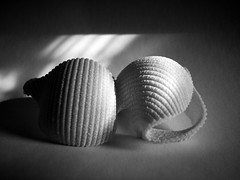Louise DeSalvo, “A Portrait of the Puttana as a Middle-Aged Woolf Scholar.” Between Women: Biographers, Novelists, Critics, Teachers and Artists Write About Their Work on Women (Routledge, 1993), 35-53.
I love this essay for many reasons.
1) It’s a seriously learned text written in a light and readable first-person voice.
2) It tells a story about being a woman that doesn’t reduce our existence to beauty (or lack thereof), procreation (or lack thereof), or our relationships (or lack thereof) to men.
3) It’s about the pleasure of archival work and falling in love with a woman writer who lived long ago.
4) It’s about growing up in an immigrant family and making your way intellectually in the language (and culture) of the new land in a new way.
5) It’s about how Virginia Woolf can save your life. Still now, in 2010.
I came to Virginia Woolf embarrassingly late in my life. By the time I discovered her, or rather by the time I re-read her in a frame of mind that allowed me to be deeply moved, I was in my thirties and had a small child.
Louise DeSalvo describes a similar experience. Her essay starts: “I am thirty-two years old, married, the mother of two small children [. . .].” Travelling to England on research with a friend, and without her family, she and her companion represent “[t]he next generation of Woolf scholars, in incubation. We are formidable” (35).
The essay explores the role of women among DeSalvo’s Italian parents and their peers, and their relationship to food and men. Both, she warns, tell you a lot about what was expected of her and the many ways in which she was a disappointment.
First: women who care about their families, she says, make fresh pasta every day — a process that takes hours, and ends up enslaving the person saddled with the task.
Second: women who do anything without their husbands are puttana — hence the essay’s title, and the opening scene on the plane.
Instead of a dutiful, stable, ever-cooking mother, DeSalsvo becomes a “whore,” a woman who lives her own life alongside her husband and children. A woman who does things without her man.
She narrates her own experience of the dichotomy of woman-writer (or woman-creator) that Woolf wrote about in her essay A Room of One’s Own, and the hope this text continues to offer to the despairing and frustrated among us.
She tells about loving a child and a husband, and at the same, loving reading, writing and writers.
Ultimately, this is an essay about how literature can change us in fundamental ways. For many of us, writing is no hobby or even profession. It is our vocation, our life-blood, the very thing that keeps us alive.
“Woolf taught us that writers are human beings, that writing is a human act, that the act of writing is filled with human consequences for a society and for its readers. No ‘art for art’s sake.’ Instead, ‘art for the sake of life'” (52).
[Photo: jspad]



Great post! Sounds like you and she are on the same page (no pun intended).
Have you thought about linking to the article in your post?
Thanks for your comment! Sorry, I can’t see how to link to this essay. It’s not available either in part or full on google books. The edition I worked from was a traditional print edition (under copyright). This means the library is the best way to get to this text. It’s a great collection, though, and worth the trip.